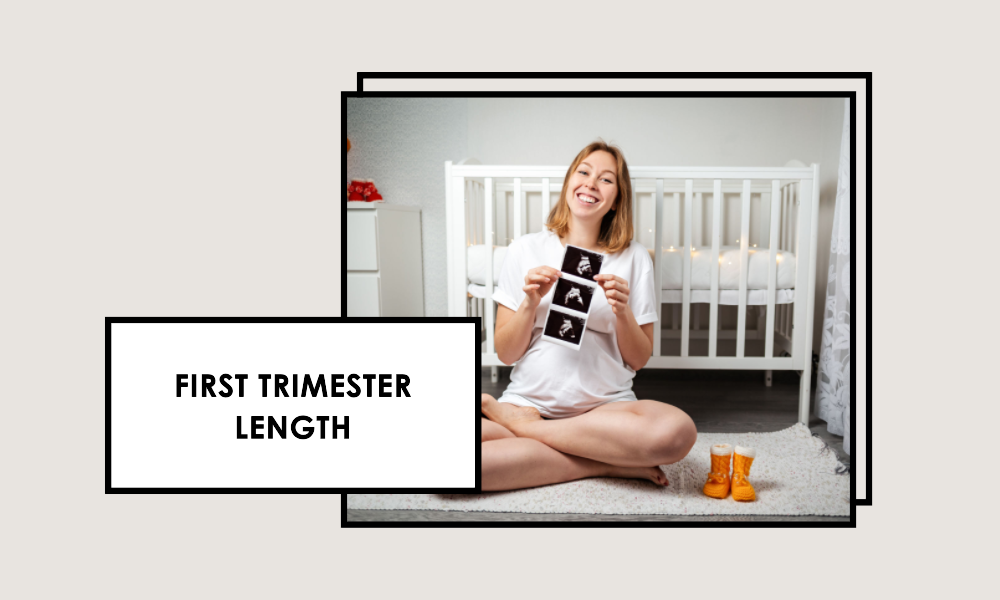Pregnancy is an exciting and life-changing experience. It’s a time of physical and emotional changes as you prepare to bring a new life into the world. Understanding the stages of pregnancy, including how long each trimester lasts, is important for expecting parents. In this article, we will focus on the length of the first trimester and discuss some of the key developments and milestones during this period.
Defining the First Trimester
Pregnancy is typically divided into three trimesters, each lasting about three months. The first trimester begins on the first day of your last menstrual period (LMP) and ends at the end of week 13.
Breaking Down the Weeks
The first trimester encompasses:
- Week 1 & 2: Counting starts from the first day of your last menstrual period. Technically, you’re not pregnant yet, but this counting method is used for convenience.
- Week 3: Conception usually occurs about two weeks after your last menstrual period.
- Weeks 4-13: This is when significant development occurs for your baby (or fetus).
This makes the first trimester approximately 13 weeks long.
What Happens During the First Trimester?
The first trimester is a period of rapid development for your baby. Here’s a brief overview of what happens:
- Weeks 4-5: The embryo’s brain and spinal cord have begun to form. The heart and other organs begin to develop.
- Weeks 6-7: The heart starts to beat. The umbilical cord, which supplies nutrients to the embryo, begins to develop.
- Weeks 8-9: The embryo starts to form fingers and toes. Its tail (found in early developmental stages) begins to disappear.
- Week 10: The embryo is now considered a fetus. It has developed most of its organs and structures.
- Weeks 11-13: The fetus continues to grow rapidly. Facial features are more defined, and the fingers and toes are fully formed.
For the mother, the first trimester can be characterized by several symptoms including:
- Morning sickness: Nausea and vomiting, often worse in the morning, but can be all day for some women.
- Fatigue: Many women feel more tired than usual.
- Breast tenderness: Hormonal changes may make breasts more sensitive.
- Cravings or food aversions: You might find yourself turning away from foods you used to enjoy, or craving foods you don’t typically eat.
Importance of Prenatal Care
It’s crucial to start prenatal care early. Since the first trimester is a period of significant development, proper monitoring can help ensure the health of both the mother and the fetus. Discuss with your healthcare provider what prenatal vitamins you should be taking, and the lifestyle changes that may need to be adopted.
Conclusion
The first trimester lasts for about 13 weeks, beginning from the first day of your last menstrual period. It’s a period of rapid development for your baby, as well as physical and hormonal changes for the mother. Prenatal care during this time is essential to ensure the health and wellbeing of both the mother and baby.










